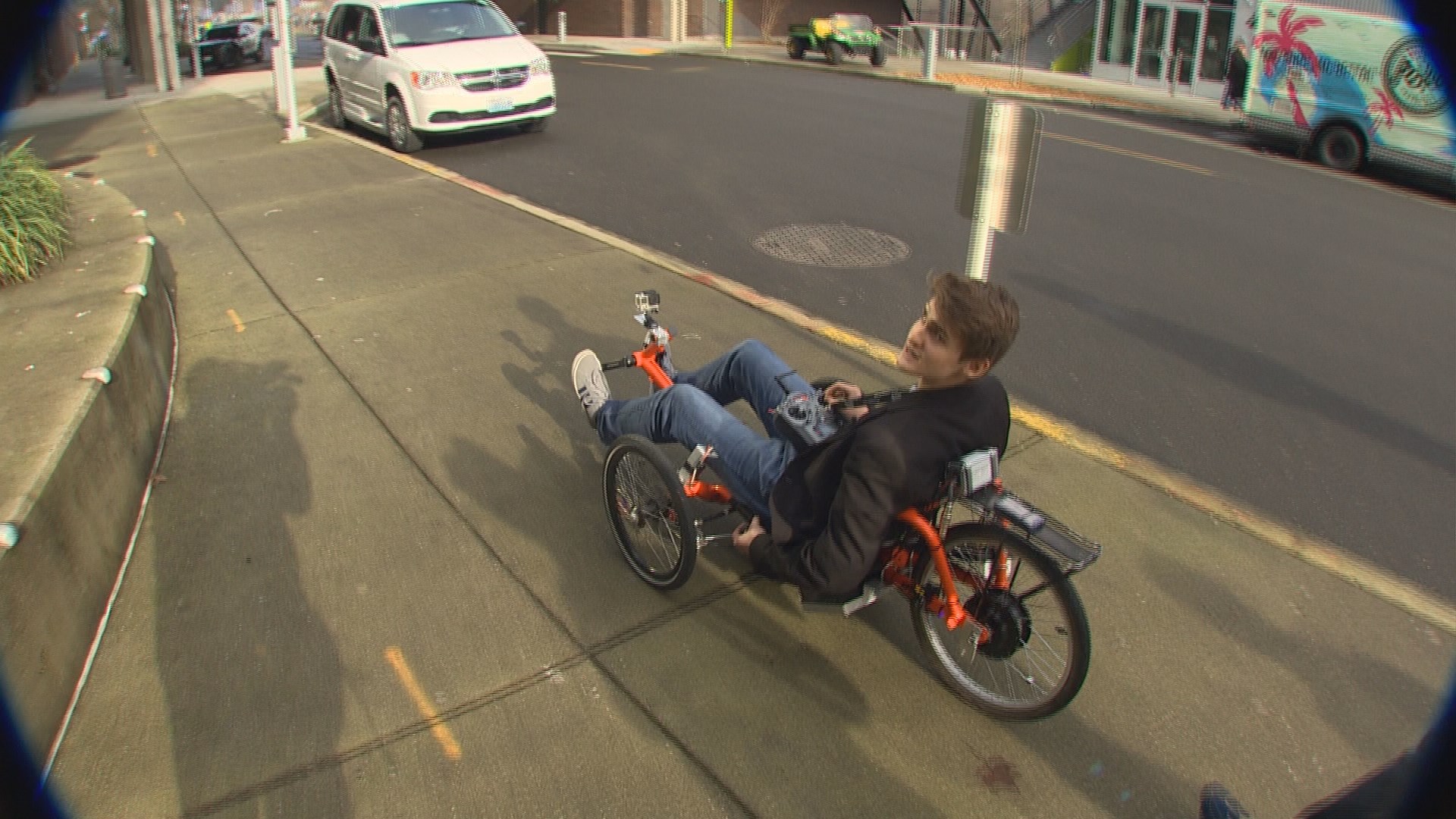BOTHELL, Wash. – One day soon, self-driving cars may be how many of us get around. That means self-driving bikes won't be too far behind.
With that in mind, a group of University of Washington-Bothell students is developing an autonomous tricycle with their instructor Tyler Folsom, a professor of computing and software systems.
They took a recumbent trike, stripped it down, and switched out all the parts to electrical components. Why a trike?
“Because it's one of the most stable bases we can use, and it's adaptable to anything we want to do,” said freshman Tim Kostersitz.
Folsom has been working on the project for a couple of years, but thanks to a $75,000 grant from Amazon, he was able to hire talented students with the determination to see the project through.
He believes the project gives the students valuable real word experience.
“In a typical college classroom, you're not working on real word problems,” Folsom said. “You're working in a lab with experiments that are set up to get the right answer. You don't have to come into conflict with how the world really works. And Mother Nature is not always very cooperative.”
From the wheel movements to the sonar to the circuits, the students design the autonomous trike to move on certain paths for specific distances.
They demonstrated how it works on UW’s soccer field. Abdullahi Abdinur, a senior, programs the path for the tricycle. Joseph Donna, a freshman, volunteers to take a seat for a test drive.
Riding it makes you feel like you’re moving a bit too fast, perhaps because as a rider, you have no control over which way it goes.
They named the trike Elcano after the first explorer to circumnavigate the globe.This Elcano runs into a few obstacles along the way, including our camera's tripod.
A collision its creators hope to avoid, once they finish mounting the sonar to the trike.


